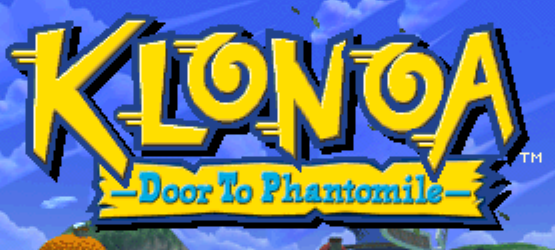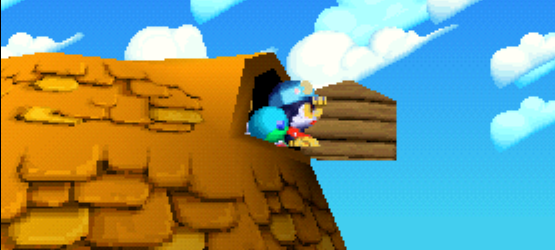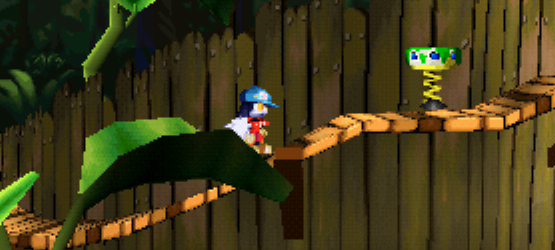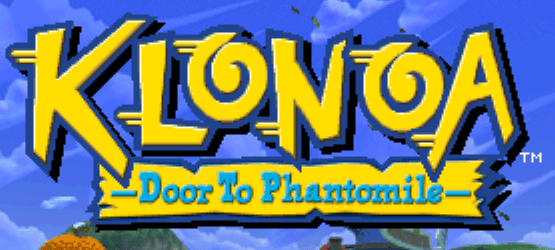
PlayStation Classics Corner is a new series on PSLS dedicated to modern reviews of PlayStation Classics released on PSN.
Klonoa: Door to Phantomile, released in 1997, was Namco’s answer to Sonic or Mario, their mascot platformer. Klonoa costs only $6 on PSN and is playable on the PS3, PSP and Vita.
This is, by far, the single most adorable game I’ve ever played. Klonoa, the protagonist, is best described as a cat-thing with rabbit ears. He’s easily the cutest gaming mascot I’ve ever known, and I find it hard to believe anything else could ever surpass him in pure cuteness – he’s like a squee in concentrated physical form, with a Pac-Man baseball cap. This may turn off many players, but I gladly welcome it. Characters communicate in a made-up language combining Japanese with gibberish and squeaks, with textboxes translating for the players. The story feels like it was written with children in mind. It’s nothing special, but there are a few plot twists near the end that feel totally unnecessary.

The gameplay is different from anything else I’ve played, it’s certainly an original platformer. Klonoa doesn’t run fast like Sonic or Mario, instead choosing to walk at a comfortable pace. The gameplay innovation comes from Klonoa’s Wind Bullet ring, which Klonoa can use to pick up enemies. After that, Klonoa can either throw them a short distance as his primary attack or use them to double-jump – any enemies below when this occurs are taken out, as well. The game plays with the concept of 2.5D gameplay very well, with items, enemies and bosses appearing in the background and foreground often without feeling too gimmicky. Players can collect gems that give an extra life for every 100, items that restore health are peppered through the levels and occasionally gold tokens can be found that restore one life. There are many puzzles spread throughout the levels, most involving level traversal, along with six characters trapped inside of bubbles in each of the game’s 14 levels. When all are “rescued,” one extra level is unlocked.
Sadly, this adorable, kid-friendly game is maddeningly difficult. The last third of the game was just way too difficult, especially the boss segments. The difficulty of these stages brings to light just how big a problem the life system is: when players run out of lives, they have to restart the entire stage from the very beginning. On the easier stages this isn’t anything to worry about, but when a boss kills you four times in a row and you have to spend half an hour getting to him again… well, it was the first time I ever had the impulse to harm my Vita, I’ll put it that way. I found that I performed better after taking a break than when repeating the levels repetitively, since a clear and alert mind is more important in this game than twitch-reflexes or impulsive reaction speed.

Klonoa‘s soundtrack was composed by a large team from Namco, and is very successful at establishing an upbeat mood throughout most of the game. Music matches the levels like a glove: for example, The Windmill Theme evokes wind, with recorders and a very light and fluffy feel, and the Jugpot Falls theme successfully evokes water, with more of a deep sound. As far as platformer soundtracks go, this is one of the best I’ve ever heard.
The 2.5D visuals are great, with most characters and enemies (all except the bosses) rendered as 2D sprites. The 3D levels are a joy to look at, with a nice color palette, imaginative designs and some great visual effects for the time. There are only a few CG cutscenes, but they’re among some of the best I’ve ever seen on the PS1. The framerate is very stable and the controls are responsive, but there’s no support for analog control. The translation is accurate, but that’s nothing special considering how little dialog the game contains.
Klonoa: Door to Phantomile is certainly one of the best platformers on the original PlayStation, but the intense difficulty near the end of the game might put off many gamers. The game only offers around six hours of platforming, but it’s very replayable and the game’s charm and high production values outclass most other offerings of the time. Any fan of platformers who hasn’t yet played Klonoa is missing out on a true gem.
-
Distinct gameplay style
-
Great production values
-
Tight controls
-
Last third of game is way too difficult
-
Outdated "lives" system
-
Unnecessary plot twists








